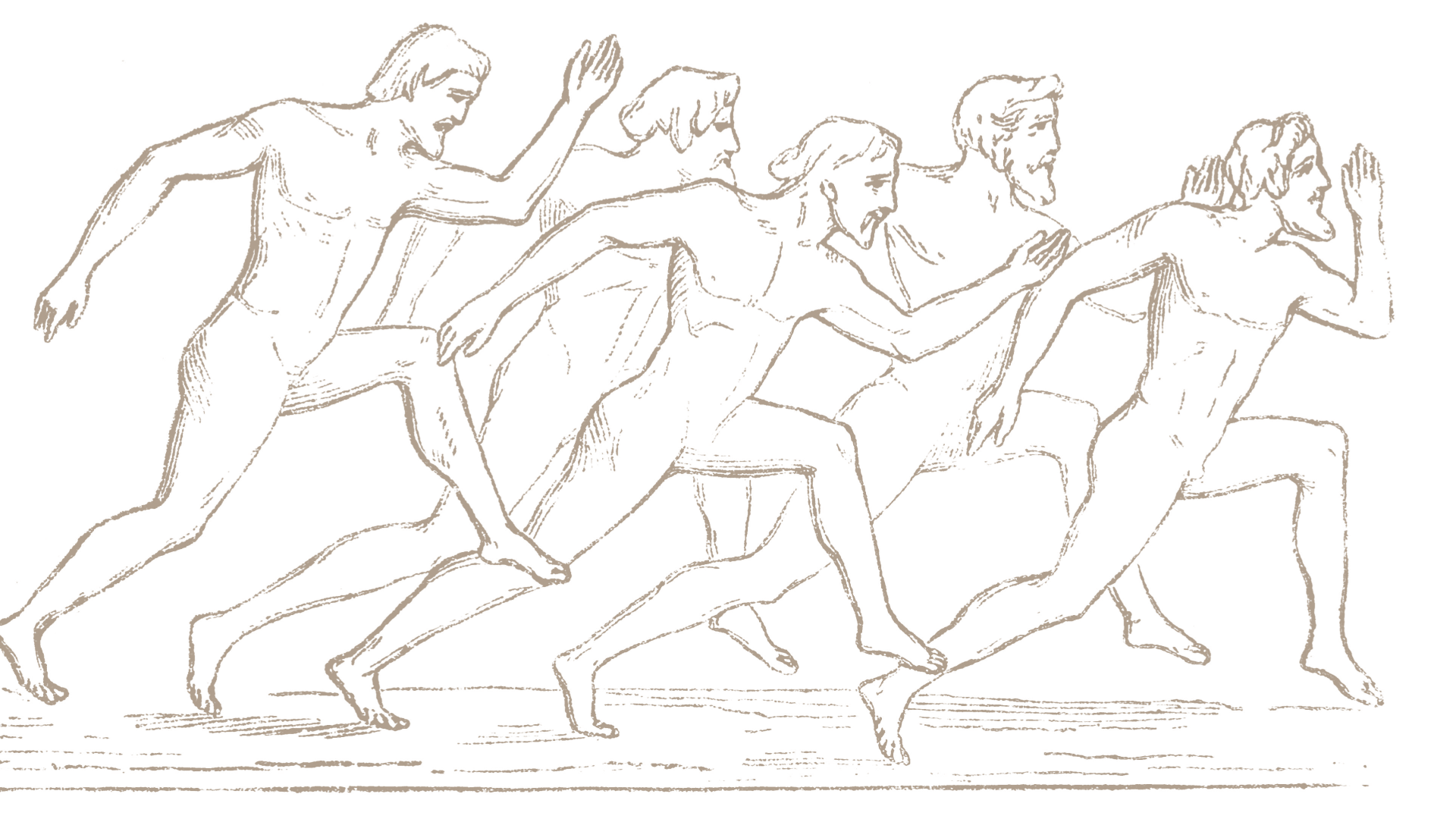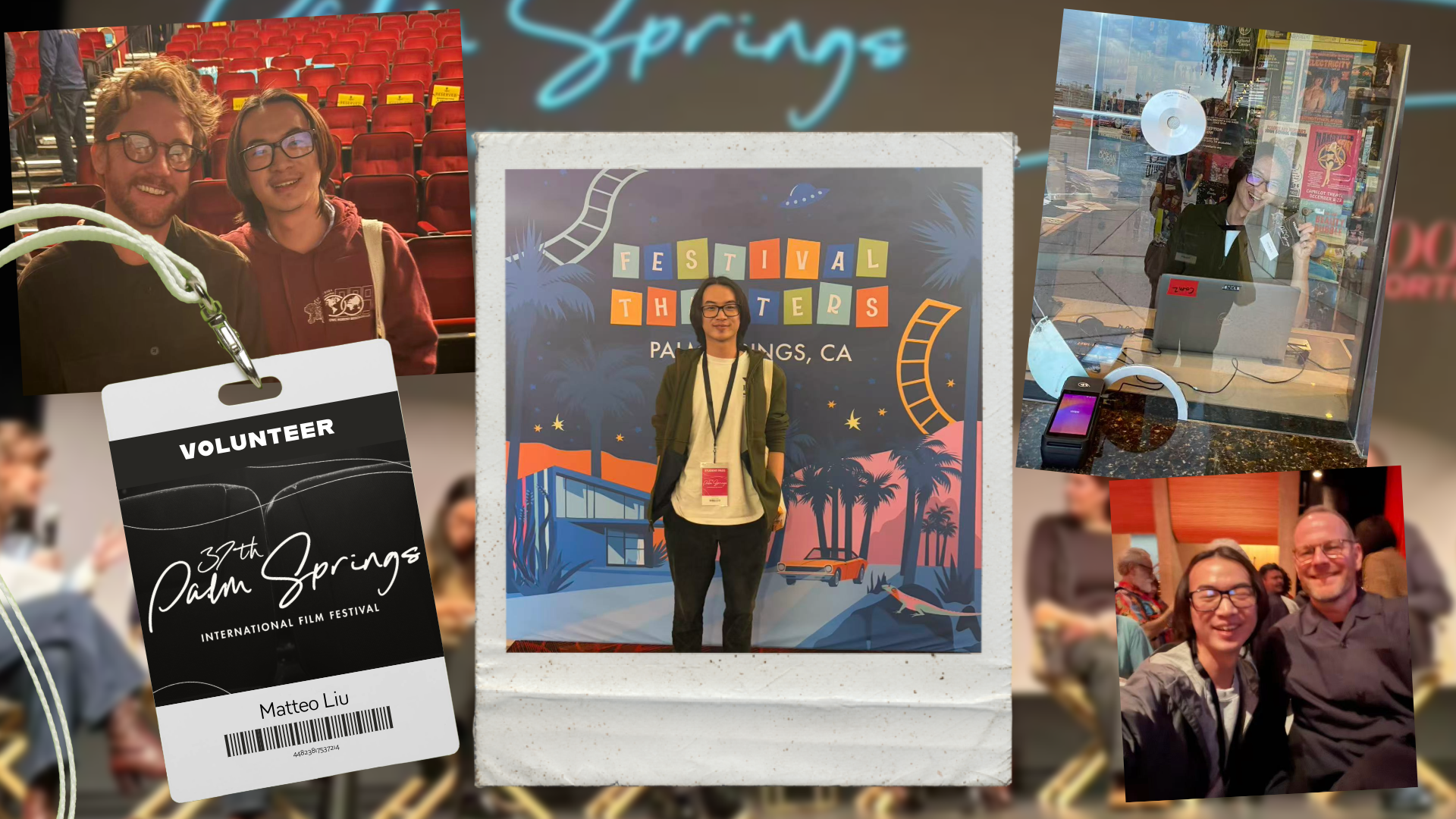Nathanael Bagonza ’24 Writes His Own Story on Capitol Hill and on Campus
September 4, 2023
- Author
- Chris Alexander

Nathanael Bagonza ’24
When members of Congress take their seats for hearings, a notepad and two freshly sharpened pencils sit in front of them. Those pencils lie at a 45-degree angle. It’s a rule. And to Nathanael Bagonza ’24, “the 45-degree rule matters.”
Bagonza spent the summer as a legislative intern for Congressman Seth Moulton, who represents Massachusetts’ 6th District. The previous summer, he interned for the transportation subcommittee of the House Committee on Appropriations through the Davidson in Washington program.
These experiences gave Bagonza, an English major and creative non-fiction writer from Haverhill, Massachusetts, an insider’s understanding of law-making in Washington. They also showed him how small bits of routine help to maintain decorum in a town built on conflict.
“You never think the 45-degree rule matters until your boss—and subsequently you—are getting chewed out for not following it,” Bagonza said. “I saw just how complex and fragile the inner workings of Congress truly were … and just how chaotic things can get when a junior staffer drops the ball on a minor thing.”
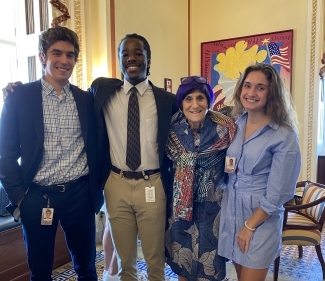
Bagonza with Steve Mirabello '25, U.S. Rep. Rosa DeLauro (Connecticut), and Annie Hirshman '24
Capitol Hill Multitasker
Bagonza’s days began with “morning clips.” He combed a collection of national and local newspapers, looking for stories to summarize and share with Moulton and the staff.
“I liked playing editor,” he said.
The rest of the day involved duties one might expect for a Capitol Hill intern: answering constituent calls, drafting letters and giving tours.
Bagonza’s writing skills and experience also allowed him to do more substantive work. Interning for the transportation subcommittee taught him about a range of issues related to infrastructure. Rep. Moulton sits on the House Transportation and Infrastructure Committee, so Bagonza brought real expertise to this part of the congressman’s work. Bagonza wrote briefings for Moulton and researched issues related to transportation policy. He pitched bills for the congressman to co-sponsor and wrote some of the questions Moulton asked when the CEO of Amtrak testified before Congress.
Despite the deep divisions in Washington, Bagonza found genuine friendship and cooperation among congressional staffers.
“I have seen nothing but positive affirmations that things can get done across the aisle,” he said. “I have many friends across the aisle and we genuinely like each other as people, which gives us hope that maybe this can be possible for the rest of the country once we break out of our political silos.”
Culture and Community
Bagonza waxes eloquent about the importance of high-speed rail and urban housing policy. He becomes even more excited when he talks about writers like David Foster Wallace, the summer blockbuster duo “Barbenheimer,” or his senior English thesis.
For Bagonza, all these interests flow from deeper commitments to culture and community.
Bagonza’s mother came to the U.S. from Uganda before he was born. She dreamed of living in “one of the iconic triple-deckers in Worcester,” he said. But she never could overcome the structural barriers that make homeownership impossible for many immigrants and other Americans. She settled in Haverhill, in a condo across from “two dangerous liquor stores.”
“I carry her story with me always,” Bagonza said. “I am a living product of an American dream she was limited in achieving for herself.”
Growing up in Haverhill instilled in Bagonza an abiding concern for systemic inequalities. It also fired his passion for art and culture. Older cousins exposed him to movies that told stories about new worlds. Music, comics and a screenwriting class taught him how to play with narrative format. Douglas Adams’s The Hitchhiker’s Guide to the Galaxy became his favorite book because it was the first book that made him laugh out loud.
A scholarship took Bagonza to St. Paul’s School in Concord, New Hampshire. In Concord and during a Davidson semester in France, Bagonza saw how access to housing, food, walkable neighborhoods and transportation created social connections and richer lives.
“I care about bringing people together,” he said. “How I walk to visit my friend, my ability to take a train to see my mom. These things shape my quality of life. In suburbia, we have to have cars. Then I went to France and saw what high-speed rail and different kinds of urban infrastructure allow people to do. “
Bagonza began thinking about the connections between culture, infrastructure and politics as the 2020 presidential election grew heated. New Hampshire’s small size and first-in-the-nation primary meant that voters saw candidates at the diner who most of the country saw on television.
Bagonza met Democratic luminaries like Sens. Jeanne Shaheen and Sherrod Brown. He snapped a selfie with Joe Biden, and he appeared in the background of a Pete Buttigieg ad. Politics was not just important to Bagonza. It was exciting.
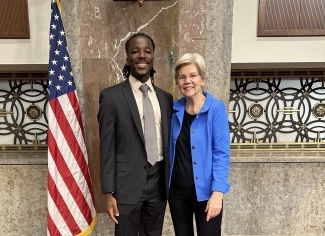
Nathanael Bagonza ‘24 with U.S. Sen. Elizabeth Warren (Massachusetts)
New England to North Carolina
The community and curriculum at St. Paul’s convinced Bagonza that he wanted to attend a small liberal arts college—“the only real way to get an education in the humanities.”
Several factors drew him to Davidson: Division I sports, a gorgeous campus, a strong BIPOC community, and reports from friends who already studied here. A Presidential Scholarship helped, too.
Ultimately, though, Bagonza came to Davidson “for adventure.”
Part of Bagonza’s adventure involves exciting new ways of writing. Professor Jack Jung’s course on the essay “totally unmoored my conception of what writing could look like,” he said.
Writers like David Foster Wallace showed him how to break traditional forms and to craft texts in creative new ways. Bagonza describes his senior honors thesis, which he is writing under Jung’s direction, as a semi-autobiographical novel about the meaning of home, identity and coming of age.
Other aspects of Bagonza’s adventure are cultural.
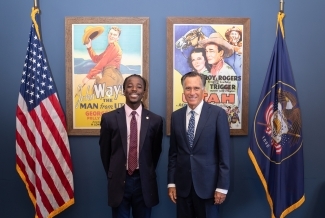
Nathanael Bagonza ‘24 with U.S. Sen. Mitt Romney (Utah)
“I’m a New Englander,” he remembers thinking. “Coming to the South will be a new experience. I thought that going to school in North Carolina would be a good way to escape the political silos that often crop up in liberal enclaves in the North.”
At Davidson, Bagonza has found a new sense of community without falling into silos. He is a Chidsey Leadership Fellow, and also served as a Deliberative Citizenship Initiative Fellow and Co-Convener. He writes for Hobart Park, Davidson’s literary journal, and he hosts trivia night for the Union Board.
“At Davidson I’ve learned how to talk to people I disagree with, and that has been a valuable skill on Capitol Hill. If you want to get anything done, it is necessary to be able to find common ground with just about anyone,” he said. “And if you want to see your own ideological priorities accomplished, you have to learn how to convince skeptics and those who wouldn’t already be predisposed to believe you.”
After Davidson, Bagonza hopes to spend a year traveling and writing as a Fulbright Scholar or a Watson Fellow. Then he wants to expand his political resume with work on a campaign.
Ultimately, though, Bagonza plans to return to Capitol Hill, and to work on housing and infrastructure policies that build strong communities.
“All my life, all I have wanted to do is help people,” he said. “I see Congress as the best place to do this work.”


